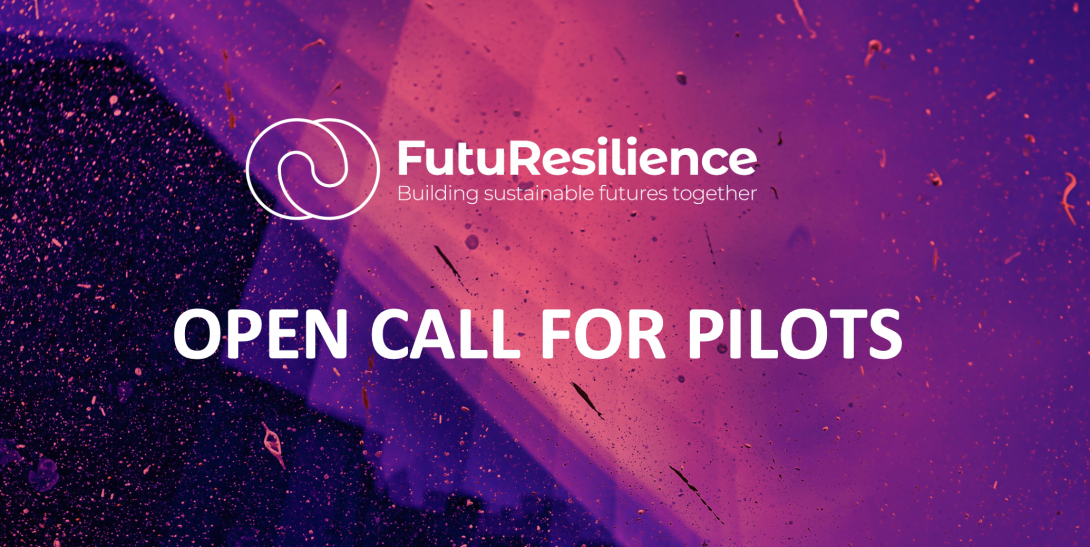Open call for pilots
15 June 2023

Aim of the open call
The FUTURESILIENCE project aims to strengthen Europe's economic and social resilience and, thereby, its ability to respond to future crises rapidly. This will be accomplished by facilitating a rapid and effective use of policy-relevant R&I findings for national, regional, and local actors. At the project's core is an experimentation phase that will include 10 Future Resilience labs working with foresight and participative methodologies to tackle a range of challenges. The experimentation approach will shed light on the future risks that Europe may face and uncover vulnerabilities in the different cases. As part of the experimentation phase, the FUTURESILIENCE project will provide financial support to third parties to achieve its objectives. Third-party projects (pilot cases) may only receive financial support if they work on areas that foster societal resilience (see call text)
Topics addressed
Organised in co-creation mode and guided by a group of experts from the consortium, each Future Resilience lab will address challenges they face from internal or external shocks. The experimentation will result in the uptake and tailoring of existing solutions and design of novel ones to address the challenges of the pilot case, looking to increase future preparedness and resilience. Indicative list of challenges:
- Urban development: housing as human right; difficulties in implementing green or digital solutions in remote regions; gentrification and inequalities; unsustainable concentration of population in urban centres / unsustainable urban sprawl
- Agriculture: access to climate-friendly technology; shifts to sustainable food production systems; producing food with less water; preserving food biodiversity; addressing land-use conflicts
- Mobility: transitioning to net-zero policies; use of data to improve mobility solutions; sustainable mobility systems (safe, affordable, accessible, low-emission, climate neutral); traffic reduction (e.g. freight transport)
- Health: shifting to digital health, linking to environmental and social implications of doing so; supply chain disruptions due to material shortages; facing pathogens X
- Welfare: ageing population and migration (including refugees, mass movement of people, displacement); social protection; tax systems; greed vs. solidarity; financial disruptions
- Industries: access to critical material; inefficiency of supply chain; skill gaps in a changing labour market; beyond growth; sustainable value creation models; technology disruptions
- Environment; increasing extreme-weather events (heatwaves, flooding, etc.); increasing loss of biodiversity; water resilience; increased stress on water/energy/food supplies; supply of materials for digital transitions
Applicants may apply for one or more of the listed areas or address additional specific topics for which they have identified a potential societal and transformational impact in terms of building or strengthening resilience. Applicants can propose further challenges not listed here and justify the selection in the application process. We welcome applications that work with cross-cutting areas and interrelated uncertainties, looking to create interlinkages among multiple topics (i.e. energy and mobility or housing and inequalities, etc.)
Who can apply?
Applicants must be legal entities and should be registered in an EU Member State or a Horizon Europe associated country (see list of countries in the Guide for Applicants). The call is open to individual organisations or joint consortium applications (see guide for applications for further information). For both cases:
The leader should be based on the place where the lab will take place.
Within the application form, a preliminary mapping of potential stakeholders (including local, regional and national policymaking levels) to engage in the experimentation phase should be included. Support letters or Memorandum of Understanding are a plus.
Groups of stakeholders already working together in previous experiences are encouraged to apply and bring further stakeholders to a joint application.
Application process
The application guidelines present a step-by-step process for the application. Each application should be done using the application form. No further sections beyond those requested will be considered in the application. Proposals should not be longer than 10 pages, annexes excluded. The evaluation procedure of the proposals is set out in the Guide for Applicants. It will include three evaluation steps: eligibility check, experts’ individual evaluation and finally a panel decision, followed by submission to EC for final approval. Signature of approved third-party grants is expected early 2024.
Interested in applying ?
Please, check the call text, application form and detailed guidance for applicants available for download below. Applications should be received by 12 October 2023 at 15:00 CET
- Open call text:
- Guide for applicants:
- Application form:
Login to add a new comment